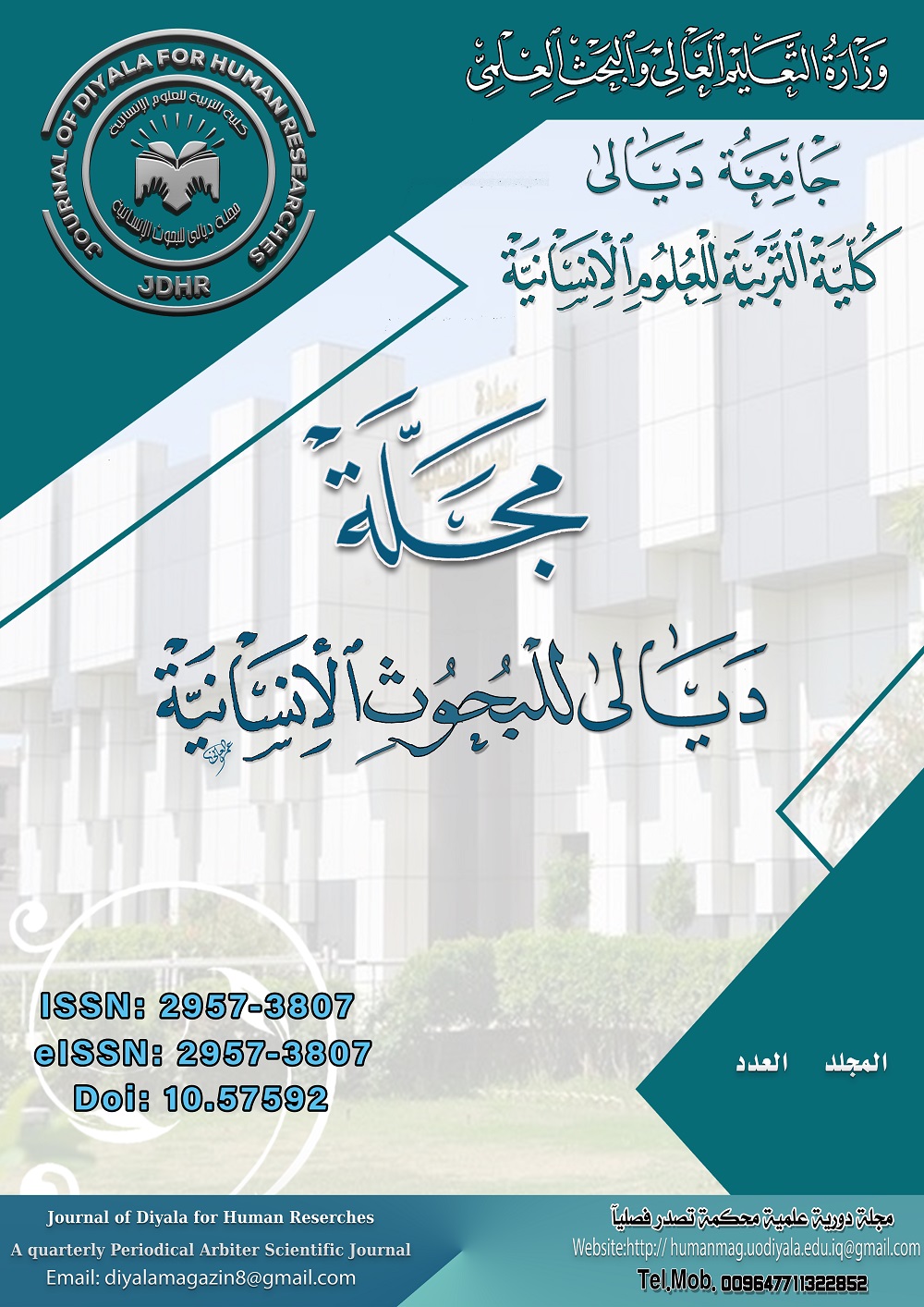A Correlation Between Self-Effficacy and Engagement among EFL University Students’ Study Grade
DOI:
https://doi.org/10.57592/kxd9wb93الكلمات المفتاحية:
Self-Efficacy, Student Engagement, EFL Learning, Correlation, University Students, Educational Psychology.الملخص
Many people believe they cannot learn a foreign language because they have a mental block against it. It is assumed that the leading cause of this unfortunate phenomenon is self-efficacy (henceforth SE) which is an essential variable in facilitating classroom learning and improving learners' language skills. On this basis, a high level of self-efficacy can cause enduring positive effects for EFL students and create a feeling of interest, enjoyment, and happiness to engage in foreign language learning. Student engagement (henceforth E) is the essential process of language development in the context of EFL learning.
As such, this research attempts to contribute meaningfully to students and teachers in determining and solving their problems in classroom activity by determining the correlation between students' self-efficacy and engagement. The problem of this research is that despite the growing recognition of the importance of self-efficacy, a clear understanding of its relationship with engagement in university EFL programs still needs to be discovered. Thus, the current research aims at: 1- specifying the level of correlation between students' self-efficacy and their engagement in a FLL context, 2- determining the role of university grade of EFL students' as far as the correlation between self-efficacy and engagement inside the class is concerned.
Based on these aims, this research hypothesises that 1- EFL University students' self-efficacy is significantly correlated to their engagement, 2- university grade of EFL students have a significant role as far as the degree of correlation between their self-efficacy and engagement is concerned.
To test the preceding hypotheses and bring about the aims, two close-ended questionnaires are adapted. The first one is a Questionnaire on English Self-Efficacy by Wang and Bai (2017) and the second one is a Student Engagement in Schools Questionnaire by Hart et al. (2011) for the four dimensions of engagement, which are: affective, behavioural, cognitive, and social and Agentic Engagement Scale by Reeve (2013) which is used for the fifth dimension of engagement that is agentic engagement. These two questionnaires are presented to a sample of (170) students (first and fourth grades) at the Department of English / College of Basic Education /University of Mosul. By analysing the collected data, it is found that: 1- EFL university students' self-efficacy is significantly correlated with their engagement. The correlation between these two variables follows positive directions, which means that when students' self-efficacy increases, their engagement also increases, and vice versa; and 2- there is no indication of the role of university grade as far as the degree of correlation between self-efficacy and engagement is concerned. However, a notable difference in engagement levels is observed between first-year and fourth-year students, with the latter demonstrating higher engagement.
التنزيلات
منشور
إصدار
القسم
الرخصة
الحقوق الفكرية (c) 2025 Muhannad Abdulrahman Ahmed ، Asst.prof. Dr.Ansam Ali Ismaꞌeel

هذا العمل مرخص بموجب Creative Commons Attribution-NonCommercial 4.0 International License.

